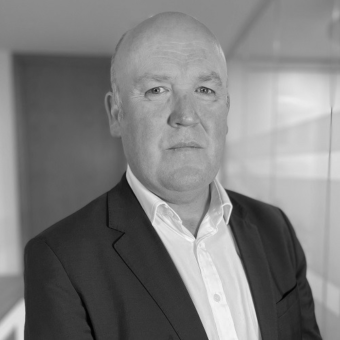Shareholders, also known as members, are investors in a company. They own a percentage of the company which is dependent on the amount they have invested and the type of shares that they own. From their perspective, it is vital that the company is well run and remains healthy.
Shareholders have certain rights to control the management of the company, but these are limited and can often be difficult in practice to carry out.
Dividends
As investors in the company, shareholders are entitled to dividends. A dividend is a payment made by a company to shareholders as a return on their investment. Dividends can only be declared if a company has made a profit after payment of corporation tax.
- if the directors of a company decide that they have a healthy balance sheet and there is a profit then they will call a board meeting to declare a dividend;
- however, there is no obligation on them to do this, and they won’t if the company has not made sufficient profit after tax to declare a dividend.
Clearly if a company is making healthy profits that are increasing year on year, then the shareholder may well receive a healthy return on their investment. However, every year there is a risk that a shareholder will not receive a dividend because profits have not been declared. Alternatively, profits may have been declared but these are low and therefore the value of the dividend is low.
It is also often the case that although a company has made a profit, this has to be diverted into other areas of the business in order to provide capital for further growth. A company is not obliged to declare a dividend for shareholders, every year, or at all. Failure to declare a dividend is not in itself an offence.
Therefore, a shareholder who is reliant on dividends from a company investment will also need to be reliant on a company’s ability to make a profit, and then to rely on the company using that profit for dividends rather than for further investment in the company. Depending on the type of company, the risk of not receiving dividends each year is high for most shareholders.
Risk of reliance on dividends for living expenses
Frequently in family run companies, the shareholders and directors are the same and there may be just few in number. The shareholders and the directors usually run the company on a day to day basis and, particularly in a small company or a start-up or a company that is facing financial pressures, often it is not possible for dividends to be declared or if they are, they are not reliable or sufficient.
- If a shareholder is also a director and this is the only means of making their living, then reliance on a declaration of dividends from the company can be particularly risky.
- There are tax benefits for a director in taking remuneration by way of dividends. Directors will frequently take their remuneration via a mix of dividends and salary, to take full advantage of all tax allowances. A director shareholder should however, make sure that they take remuneration throughout the year by way of salary in order to avoid being fully reliant on dividends for living expenses.
Directors loan account (DLA)
Often directors who are also shareholders in a small to medium sized company will take money from the company on a monthly basis to live on, and write this up to a director’s loan account. If the company makes sufficient profits by the end of the year, then they will declare a dividend which will repay the director’s loan account.
- however, there is a serious risk that the company may run into financial difficulties by the end of the year and there may not be sufficient declared dividends in order to cover the DLA,
- if a DLA remains unpaid at the end of the year, then it will be subject to a charge by HMRC.
If the company enters insolvency before repayment of the DLA, then an insolvency office holder will inevitably take proceedings against a director for the return of those monies as unlawful drawings.
Remuneration for director / shareholders via salary
The other alternative to repaying the director’s loan account via declared dividends, is to provide for the directors to be paid a salary as employees and to pay tax under the PAYE system on this salary.
- For a company that is not making large and regular profits, this is a safer option for business owners.
- If the company enters insolvency, the directors are unlikely to be asked to refund salary payments in the same way that they would be asked to repay an overdrawn DLA if these have been properly paid and tax paid on them. Note that there are certain circumstances where a director’s salary might incur some personal liability in an insolvency situation, but this would inevitably be if the salary was hugely disproportionate to the profits of the company, and creditors were disadvantaged as a result.
Therefore, shareholders who are merely investors in the company have the risk that they will not see dividends declared if the company is not in sufficiently profitable. Shareholders who are also directors who rely solely on declared dividends as a method of remuneration bear a much higher risk if they rely financially on a dividend in place of a regular salary.
If you would like to talk to someone about the best way to be remunerated as a director shareholder, then our team at Francis Wilks & Jones have many years of experience in this area and can guide you appropriately. Contact one of our friendly team today to discuss.
Supportive and friendly with partner-led involvement, I would recommend Francis Wilks & Jones to anyone facing a similar situation.
A shareholder we helped settle a remuneration dispute









